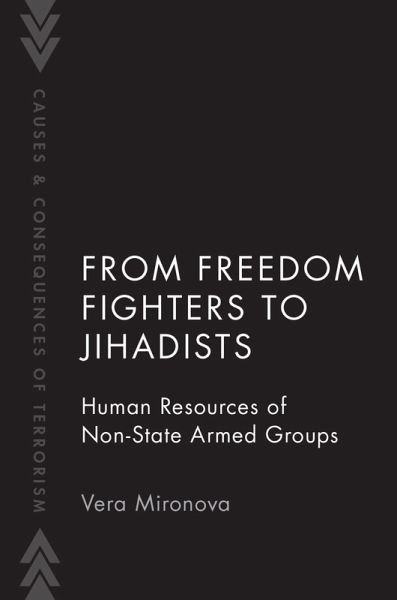
From Freedom Fighters to Jihadists (eBook, PDF)
Human Resources of Non-State Armed Groups

PAYBACK Punkte
11 °P sammeln!
At the start of the Syrian conflict in 2011, thousands of pro-democracy rebel groups spontaneously formed to fight the Assad regime. Years later, the revolution was unrecognizable as rebel opposition forces had merged into three major groups: Jabhat al-Nusra, Ahrar al Sham, and the Islamic State in Iraq and Syria (ISIS). Why did these three groups rapidly increase in size and military strength while others simply disappeared? What is it about their organizational structure and their Islamist ideology that helped group manage their fighters so successfully? With these questions at the forefront...
At the start of the Syrian conflict in 2011, thousands of pro-democracy rebel groups spontaneously formed to fight the Assad regime. Years later, the revolution was unrecognizable as rebel opposition forces had merged into three major groups: Jabhat al-Nusra, Ahrar al Sham, and the Islamic State in Iraq and Syria (ISIS). Why did these three groups rapidly increase in size and military strength while others simply disappeared? What is it about their organizational structure and their Islamist ideology that helped group manage their fighters so successfully? With these questions at the forefront, this book examines the internal organization of armed groups and, in particular, their human resources. Analyzing the growth of these groups through the prism of a labor market theory, this book shows that extreme Islamist groups were able to attract fighters away from more moderate groups because they had better internal organization, took better care of fighters both physically and monetarily, experienced less internal corruption, and effectively used their Islamist ideology to control recruits. With unparalleled access and extensive ethnographic research drawn from her interviews and her year embedded with Iraqi Special Operation forces, Mironova delves deep into the ideological and practical nexus of some of the most radical groups in the Middle East. This book brings together more than 600 survey-interviews with local civilians and fighters on the frontline in Syria and a dataset of human resource policies from 40 armed groups; it is an invaluable resource for anyone who wants insight into the on the ground functioning of rebel organizations.
Dieser Download kann aus rechtlichen Gründen nur mit Rechnungsadresse in A, B, BG, CY, CZ, D, DK, EW, E, FIN, F, GR, HR, H, IRL, I, LT, L, LR, M, NL, PL, P, R, S, SLO, SK ausgeliefert werden.













